Clifford Garstang's Blog, page 24
August 24, 2021
My Mandarin Chinese Journey: Part 1
My Mandarin Chinese Journey: It all started with French
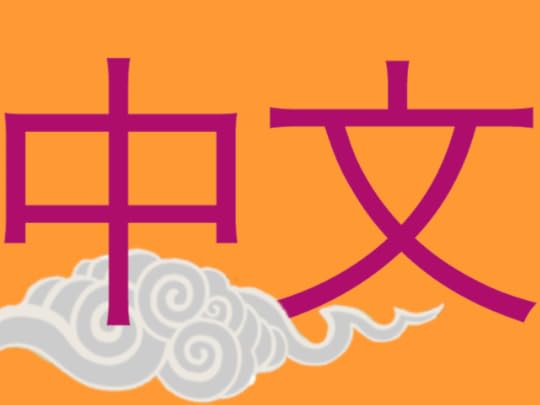
I’m not really a hobby person. My work (writing fiction) is challenging enough to keep me interested creatively, so I don’t feel the need to paint or draw or throw pots. I’m a little bit lazy when it comes to physical activity, so I don’t get as much exercise as I probably should and my gardening and yardwork I keep to the bare minimum. I would like to learn to play piano, and occasionally I sit down at my keyboard with one of my learning tools and begin again, but I never stick with it for long. However, there is one thing I do to stimulate my brain that I really enjoy, and that’s learning foreign languages.
The first foreign language I ever studied was French. That was back in 5th Grade. My parents enrolled me in a special school in Indianapolis, and French was part of the curriculum. Unfortunately, we moved away at the start of 6th Grade, so that was the end of French for me, for the time being. In high school, I took four years of German, whereas most of my classmates were taking French or Spanish. I probably chose German just to be different. That was enough to satisfy my foreign language requirement in college, and later it was sufficient preparation for the European language proficiency exam when I got my MA in English.
With my college language requirement satisfied, I dabbled in Russian for a couple of quarters as a Senior. I did well enough, and it was interesting, but I stopped there. I no longer remember why I stopped, and I’ve retained very little of it, although exposure to the Cyrillic alphabet did come in handy later when I worked in Kazakhstan and Mongolia.
Jumping forward in time, I took a year of Spanish at the local community college in preparation for traveling in Mexico in connection with a writers’ conference. That was a blast and a great investment of time. When I visited Spain in 2019, I started using Duolingo to refresh my Spanish, and I’ve been doing daily Spanish practice ever since. In 2011 I spent a few weeks in France and in anticipation of that trip I took French at the community college. Again, that was fun. I had retained only a handful of words from my 5th Grade French class, so it was a challenge, but it came in handy on that trip (and a subsequent 6-week stay in France several years later).
So, I’ve spent a lot of enjoyable time studying European languages—German, Russian, French, and Spanish—but what I want to focus on in this series of blog posts is my study of Chinese, which is where I devote most of my linguistic energy these days.
How did I come to study Chinese? That will be the subject of the next couple of posts in this series.
August 20, 2021
I’ve Got Questions for Lisa Sukenic
Editor’s Note: This exchange is part of a series of brief interviews with emerging writers of recent or forthcoming books. If you enjoyed it, please visit other interviews in the I’ve Got Questions feature.
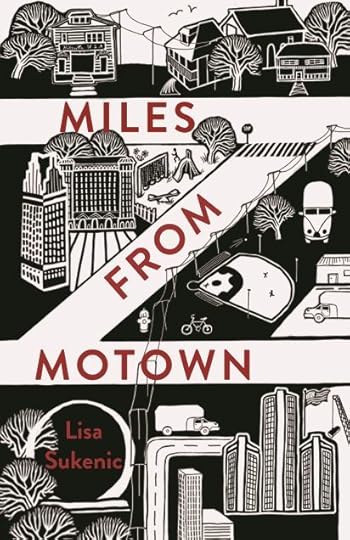 Miles from Motown by Lisa SukenicWhat’s the title of your book? Fiction? Nonfiction? Poetry? Who is the publisher and what’s the publication date?
Miles from Motown by Lisa SukenicWhat’s the title of your book? Fiction? Nonfiction? Poetry? Who is the publisher and what’s the publication date?Miles from Motown is a historical novel in verse with a publication date of August 21, 2021: Miles from Motown Regal House/Fitzroy Publishing
In a couple of sentences, what’s the book about?It is 1967 and twelve-year-old Georgia copes with her family’s move and her brother’s deployment to Vietnam by hanging her hopes on winning “The Spirit of Detroit” poetry contest.
What’s the book’s genre (for fiction and nonfiction) or primary style (for poetry)?Miles from Motown is a middle-grade historical novel-in-verse.
What’s the nicest thing anyone has said about the book so far?“Like the city it’s named for, this novel has an engine all its own and that engine never stops. Once you start reading, you can’t put it down. It’s more than a book, it’s a whole experience; full throttle reminder of how it feels to come of age in a chaotic time and place. Georgia’s journey speaks to the poet in all of us.” ~J. S. Puller, author of CaptainSuperlative
What book or books is yours comparable to or a cross between? [Is your book like Moby Dick or maybe it’s more like Frankenstein meets Peter Pan?]Inside Out and Back Again– Thanhha Lai & Full Cicada Moon- Marilyn Hilton, meets The Color of Rain-R.L Toalson & The Unsung Hero of Birdsong-USA- Brenda Woods.
Why this book? Why now?Even though Miles from Motown is a historical novel in verse, the themes are universal, such as friendships, bullying, loss, change, peace/war, using your voice, family secrets, and family support. History is important so that we know our past. The inclusion of Gwendolyn Brooks as Georgia’s role model is important and significant and is woven into the story intentionally as a strong woman who made history but more importantly made an impact on Georgia the poet. The storyline of Miles from Motown explores the racial tension Georgia and her family experience in her new neighborhood, a historical reality that continues today.
Other than writing this book, what’s the best job you’ve ever had?The best job that I ever had and still have is being an elementary school teacher. I have been an educator for 35 years. I worked at a small private integrated arts school for eighteen years and currently work at The University of Chicago Lab Schools. As co-coordinator of my school’s Global Reading Challenge, I spend my summer reading middle-grade fiction and selecting books for the next school year. When the students are in their book discussion groups, I love to hear their insightful comments when they read, write and discuss the literature.
What do you want readers to take away from the book?Readers can take away the idea that life is filled with change and everyone has the ability to hope and cope to deal with their life’s challenges. I want the reader to understand that even when a situation seems impossible it may work out in the end. At times, we all make spontaneous decisions that come from needing to take ownership, when you feel out of control, but that ultimately you need to find a way to be truthful and use your voice.
What food and/or music do you associate with the book?The music I associate with this book is the Motown sound of the late 60’s especially Aretha Franklin’s R-E-S-P-E-C-T.
What book(s) are you reading currently?I just finished The Magical Imperfect by Chris Baron, Clues of the Universe by Christina Li and I am currently reading The Shape of Thunder by Jasmine Warga.
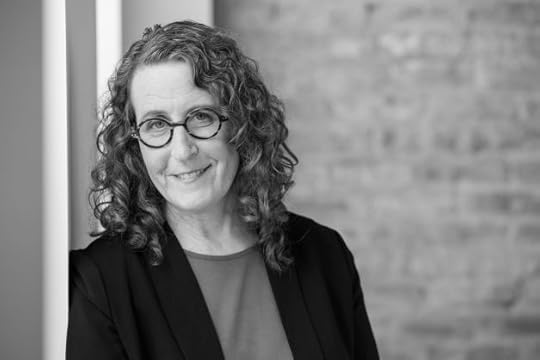 Lisa Sukenic
Lisa SukenicLearn more about Lisa at her website.
Follow her on Twitter.
Buy the book from the publisher (Regal House/Fitzroy Books), Women & Children First, Amazon, or Bookshop.org.
August 6, 2021
I’ve Got Questions for Kathy Flann
Editor’s Note: This exchange is part of a series of brief interviews with emerging writers of recent or forthcoming books. If you enjoyed it, please visit other interviews in the I’ve Got Questions feature.
 Write On: Secrets to Crafting Better Stories by Kathy FlannWhat’s the title of your book? Fiction? Nonfiction? Poetry? Who is the publisher and what’s the publication date?
Write On: Secrets to Crafting Better Stories by Kathy FlannWhat’s the title of your book? Fiction? Nonfiction? Poetry? Who is the publisher and what’s the publication date?Write On: Secrets to Crafting Better Stories
Stay Thirsty Publishing, May 2021
In a couple of sentences, what’s the book about?This book is a collection of craft columns that appeared in Stay Thirsty Magazine. The topics include: Characters Reign Supreme, The Ticking Clock, Suspense vs. Confusion, Betraying the Reader, and Should Writers Teach?
What’s the book’s genre (for fiction and nonfiction) or primary style (for poetry)?Write On is a nonfiction guide to writing craft. Its target audience is emerging writers, but it could appeal to anyone who writes. No matter how advanced we are, we do tend to go back to basics over and over.
What’s the nicest thing anyone has said about the book so far?A number of people have said the book has energy. They say, “It’s like I can hear you talking to me.” I feel relieved because I wanted it to be instructive without feeling didactic.
A colleague who adopted Write On for a class wrote this great review:
“I teach writing in an MFA program and have recently begun using Kathy Flann’s book WRITE ON: Secrets to Crafting Better Stories (Stay Thirsty Press) in the classroom. I appreciate the readable humor, relatability, and stealthy brilliance of her advice. Flann’s creative observations and essential recommendations make writing a strong, authentic narrative more achievable–sooner. One grad student told me that her instruction helps him to ask the big story questions earlier than he might otherwise. I use the book in my own writing life as well. It’s a smart, comforting how-to for anyone drafting a new work, which all writers, at every career stage, must do.”
What book or books is yours comparable to or a cross between? [Is your book like Moby Dick or maybe it’s more like Frankenstein meets Peter Pan?]Write On is one person’s accumulated wisdom about struggles that writers typically face, somewhat in the tradition of the iconic craft book, Bird by Bird, in which Anne Lamott provides strategies, not only for storytelling, but also for coping with our inner-critics. Her title is about setting small goals. My own theme is, basically, You already know how to do this. Trust yourself. Keep going. That’s why I chose Write On as the title.
Why this book? Why now?I’ve taught fiction writing for years, and I developed little pep talks/stand-up routines about common writing challenges in order to reframe the issues in accessible and familiar ways. I did stand-up comedy in college, and I also write humor. Just as I was thinking, Hey, I ought to commit these mini-lectures to the page, the editor of Stay Thirsty approached about contributing a regular column. Initially, I just wanted to capture the best version of each lecture, creating a library to which I could refer my own students. But with the magazine and now the book, a broader audience can access them.
It has been one of the great privileges of my life to be intimately involved with other people’s creative processes. I see so many writers go through the same rough patches, all the while feeling as though they are the only ones.
Everyone has a story to tell. The well of human creativity has untold depths. Sometimes, we just need tiny adjustments to the ways we think about craft (and ourselves) to translate what’s in our heads into words that fulfill a story’s promise.
Other than writing this book, what’s the best job you’ve ever had?Maybe it’s already obvious, but my favorite day job is teaching. There are many components to the job, but what I mean by “teaching” is the actual time spent with students. People’s creative preoccupations are never not fascinating.
What do you want readers to take away from the book?I hope readers finish the experience feeling more confident than they started it. There’s so much that our brains already know how to do that is useful for writing. For example, it is a daily experience to have thoughts we don’t say out loud. I don’t mean we’re having offensive thoughts (although we could be) but rather that we are having thoughts that are incomplete or thoughts we are taking out for a test drive or thoughts that could drive a wedge into a relationship if spoken aloud. But a lot of writers, in early drafts, forget to let characters hold some thoughts inside their lips. We gain a great deal of tension in a story by showing the reader what’s not said. I try to demonstrate to writers that they already have a model for a believable character – their own brains. We don’t have to be published writers in order to write well. We just have to be people with skills of observation – and these can be honed.
What food and/or music do you associate with the book?The book features many examples of silly, hypothetical plots I devise for illustrative purposes, some of which feature food or music. For example, I find the word sandwich to be somehow hilarious, as evidenced by this passage from “The Importance of Character.” Do I continue to talk about this sandwich through the entire chapter? Yes, I do.
“After many years of writing and teaching others to write, I’ve come to suspect that most of us are asking the wrong question: What’s this story about?
Plot is easy to articulate. The people I mentor often approach at the end of a session and rattle off the details of a current project. They tell me what it’s about: My story is about a guy who eats a poisoned sandwich and wakes up in outer space. The person beams, certain that the work has been done for a good story.
Okay,” I say. “So what’s the problem?” I’ve worked with writers long enough to know that the person wouldn’t be telling me about the story at all if things were going well with the writing.
Sometimes the writer just makes a face and lets out a weary sigh. Sometimes I hear, “Well, my brother (friend/writing group/rabbi) read it, and I don’t know. It just didn’t have much impact.” Most often, the writer says, “I’ve been trying to make it work. And I can’t finish it. I hate it.”
The relationships we have with our stories can be like bad romances. The concept had seemed so promising at first, but what a dud it turned out to be! We may fail to commit over and over, sure that the issue is with the stories. It’s tempting to keep scrapping idea after idea, to believe that the right idea will solve the problem. The old platitude, “It’s not you, it’s me,” might actually be true in this case. The writer may have faulty notions of what a relationship with a story is all about.”
What book(s) are you reading currently?As it happens, my dog just had knee surgery. We normally go to agility classes every week, and he’s quite bored during his recovery.
I’ve picked up a copy of How Stella Learned to Talk: The Groundbreaking Story of the World’s First Talking Dog by Christina Hunger. The writer is a speech pathologist who adapted strategies from her work with kids to her dog training at home, relying on a small device with buttons to allow the dog to “talk.” She gives tips for readers to try it out with their own dogs.
At first glance, this book may seem unrelated to my own, but it’s funny you asked because it is strangely pertinent. I often discuss with students how, some days, we say to ourselves, “I don’t have time to write today. I’m too busy.” Whenever I hear this statement in my own head, I test out the truth of it like this: “Well, what if someone offered me something really great, like the chance to communicate telepathically with my dog, but only if I found time to get some writing done today? Would I make time?”
If I teach my dog to talk, I suppose I’ll have to devise some other test! I think that’s the nature of the creative process – we find strategies to outsmart ourselves. But a self is a moving target. And ironically, that’s exactly what makes people so interesting to explore in stories in the first place.
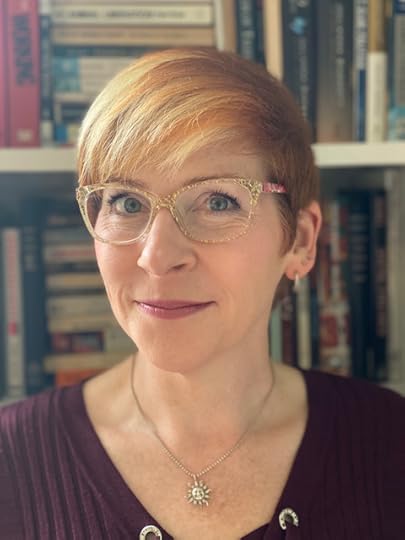 Kathy Flann
Kathy FlannLearn more about Kathy on her website.
Follow her on Twitter.
Buy the book from Bookshop.org or Amazon
August 4, 2021
I’ve Got Questions for Barbara McHugh
Editor’s Note: This exchange is part of a series of brief interviews with emerging writers of recent or forthcoming books. If you enjoyed it, please visit other interviews in the I’ve Got Questions feature.
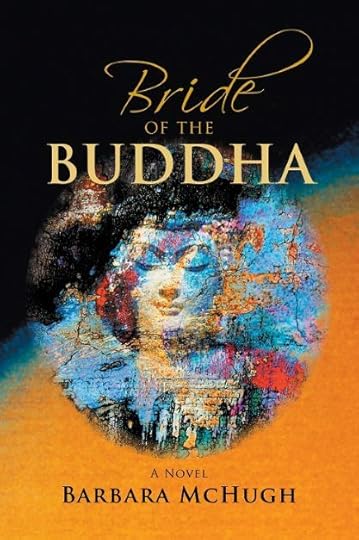 Bride of the Buddha by Barbara McHughWhat’s the title of your book? Fiction? Nonfiction? Poetry? Who is the publisher and what’s the publication date?
Bride of the Buddha by Barbara McHughWhat’s the title of your book? Fiction? Nonfiction? Poetry? Who is the publisher and what’s the publication date? The book’s title is Bride of the Buddha, published by Monkfish Books, and it came out on January 24, 2021.
In a couple of sentences, what’s the book about?Bride of the Buddha re-imagines the story of Yasodhara, the Buddha’s wife, whom he abandoned to go seek enlightenment. In my novel, Yasodhara has her own spiritual quest, which includes disguising herself as the monk Ananda and changing Buddhism forever.
What’s the book’s genre (for fiction and nonfiction) or primary style (for poetry)?The book is a historical novel.
What’s the nicest thing anyone has said about the book so far?“Life-changing”, “the best book I ever read” by reviewers. “A luminous, imaginative story of love and devotion” by Foreword Reviews. Publisher’s Weekly called my novel an “engrossing exploration of gender dynamics, identity, and the spiritual quest for meaning [that] will appeal to Buddhists and general readers alike.”
What book or books is yours comparable to or a cross between? [Is your book like Moby Dick or maybe it’s more like Frankenstein meets Peter Pan?]I like to compare my book to the many recent novels from the point of view of women protagonists who’ve had significant relationships with historical or legendary men. These novels tell the women’s stories, as opposed to relating a man’s story from a female point of view. Madeline Miller’s best-selling novel, Circe, is an example. Other examples are Barbara Quick’s wonderful Vivaldi’s Virgins, based on the life of Anna Maria dal Violin, one of the elite musicians cloistered in the foundling home where Antonio Vivaldi was the maestro and composer. Finally, I have been very inspired by Elizabeth Cunningham’s series of books about Mary Magdalen. Like Bride of the Buddha, these novels tell the story of a woman who has been intimate with the founder of a world religion.
Why this book? Why now?We live in a time where we’re suffering the dire consequences of our self-centered values. Buddhism and other religions can offer an alternative, but present their own problems. A primary one is the conflict between embracing the world and transcending it – in other words, love versus mysticism, or social action versus quietism. My protagonist embodies this dilemma, and her story offers, not an answer, but a clarification of the issue.
Bride of the Buddha also challenges the misogyny of many religions, which take women to be secondary beings unfit to approach ultimate questions on their own. My protagonist, as a woman, is an example of women as “default” people, with their stories at the center of the human endeavor. “Default: means that when you think of a person, you don’t automatically think of a man. For many women, this perception can be very empowering.
Other than writing this book, what’s the best job you’ve ever had?I worked as a book doctor/writing coach for many years. I love working with other writers; people are offering their best to the world, and there are few things more satisfying than helping them do this. Also, I learned from these writers, and teaching the craft of writing sharpened my own craft.
What do you want readers to take away from the book?Besides a deeper understanding of the issues I’ve already mentioned, I’m hoping to introduce a fresh perspective on Buddhism. I’ve known many women who were turned off to Buddhism because its founder was a man who’d abandoned his wife and child. Hopefully, I make the Buddha’s motivations more understandable, as well as giving a voice to the wife he abandoned. I wanted to depict the Buddha as a human being, with values that resonate with today’s humanism. I also attempted to show how Enlightenment might affect these values.
What food and/or music do you associate with the book?That’s a difficult question to answer! Little is known of the food and music of 2500 years ago; also, the Buddhist monastics were forbidden to attend musical performances and encouraged to perceive food as strictly a means to fuel the body in the quest for Enlightenment. At the same time, the Buddha was often invited to dinner, where his supporters presumably served him their very best (he had one explicit rule: his monastics were forbidden to eat any meat killed expressly for them). Which leads me to one food item that figures strongly in the plot: mushrooms. Mushrooms are served more than once in my novel, with far-reaching and terrible effects.
As far as music is concerned, I’ll just let readers fill in the blanks with their inspirational music of choice. Perhaps meditative silence says it all.
What book(s) are you reading currently?The Ministry for the Future: A Novel, by Kim Stanley Robinson, described as “a remarkable vision of climate change over the coming decades.” I’m also reading the Digha Nikaya, (the Long Discourses of the Buddha in translation).
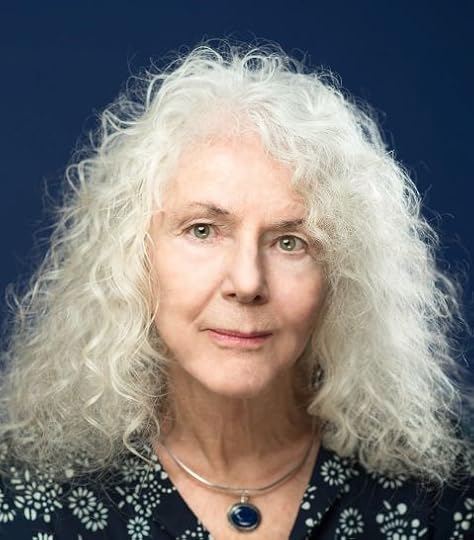 Barbara McHugh
Barbara McHughLearn more about Barbara on her website.
Follow her on Facebook.
Buy the book from Monkfish Books, Amazon, or Bookshop.org
August 2, 2021
I’ve Got Questions for Carol Dines
Editor’s Note: This exchange is part of a series of brief interviews with emerging writers of recent or forthcoming books. If you enjoyed it, please visit other interviews in the I’ve Got Questions feature.
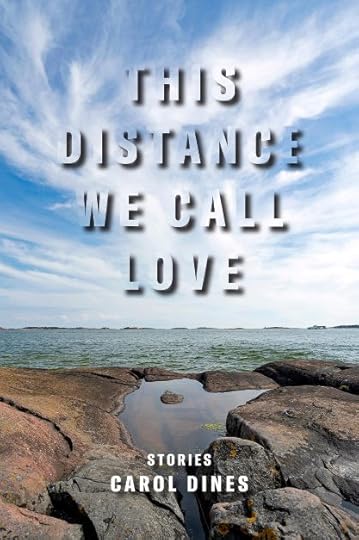 This Distance We Call Love by Carol DinesWhat’s the title of your book? Fiction? Nonfiction? Poetry? Who is the publisher and what’s the publication date?
This Distance We Call Love by Carol DinesWhat’s the title of your book? Fiction? Nonfiction? Poetry? Who is the publisher and what’s the publication date?The title of my new book, a collection of short stories published by Orison Books, is This Distance We Call Love. The launch date is August 3, and my virtual book launch is August 4th at Magers and Quinn Bookstore in Minneapolis.
In a couple of sentences, what’s the book about?The stories explore boundaries in our most intimate relationships, how they change over time—marriage, family, friendship. I wanted to explore the tension between the demands of relationships and the demand in ourselves to keep growing.
What’s the book’s genre (for fiction and nonfiction) or primary style (for poetry)?The genre is fiction, and the stories have been called “novelistic” in style.
What’s the nicest thing anyone has said about the book so far?One of the reviewers said, “I have only rarely encountered short fiction that has this kind of visceral immediacy, so surprising at all turns.”
What book or books is yours comparable to or a cross between? [Is your book like Moby Dick or maybe it’s more like Frankenstein meets Peter Pan?]One reviewer compared my stories to Lorrie Moore and Alice Munroe. Both have been big influences, as has AM Homes.
Why this book? Why now?Although the stories were written before the pandemic, I believe they deal with issues that have surfaced now more than ever. They ask the question: What does one human being owe another? The stories in this book are about how the world encroaches on our most committed relationships. As our communities confront huge issues of climate change, violence, and post-pandemic life, we are all examining boundaries between ourselves and others, ourselves and the world.
Other than writing this book, what’s the best job you’ve ever had?Teaching poetry and fiction to children and adolescents in residency programs.
What do you want readers to take away from the book?I hope readers will see that we all have a responsibility to live our own lives, not the lives of other people. Love is an act, a series of choices over time. Sometimes we fail others or ourselves. That is human, and hopefully, we learn how to love better.
What food and/or music do you associate with the book?Pasta primavera because two stories take place in Italy. The song that comes to mind is Carol King’s You’ve Got a Friend.
What book(s) are you reading currently?Girl, Woman, Other by Bernardine Evaristo
Esther Stories by Peter Orner
 Carol Dines
Carol DinesLearn more about Carol on her website.
Follow her on Facebook.
Buy the book from the Orison Books or Bookshop.org
August 1, 2021
2021 Reading–July
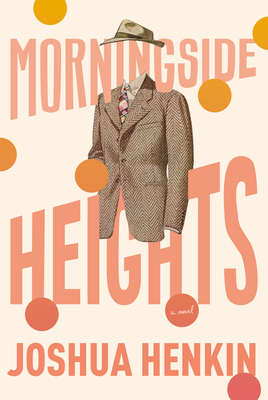 Morningside Heights by Joshua Henkin
Morningside Heights by Joshua HenkinMorningside Heights by Joshua Henkin is an odd sort of novel, mostly because there’s almost nothing odd about it. I kept looking for the novel’s raison d’etre, but I never settled on what it might be. It’s a domestic story about Pru and Spence who meet when Pru is his graduate student at Columbia in the 1970s. She has arrived from Columbus, Ohio, is somewhat naïve and infatuated. They begin sleeping together—a dangerous thing for a professor to do even back then, but the story, thankfully, doesn’t go there. Instead, Pru quits the program, they get married, and life goes on. It turns out, however, that Spence has a son from a short-lived previous marriage, and Arlo complicates things, but only just a little. In contrast with Spence, Arlo is no scholar and struggles in school. Then, along comes Sarah, Pru and Spence’s own daughter, and she is a stronger student. Arlo, too, eventually displays his more unconventional brilliance. But we learn fairly early in the book because of its jumbled timeline that Spence develops Alzheimer’s, and this is the challenge they all face. Frankly, there’s nothing very surprising in the story, which is unfortunate, because it’s otherwise a well-written book. My full review is in the New York Journal of Books.
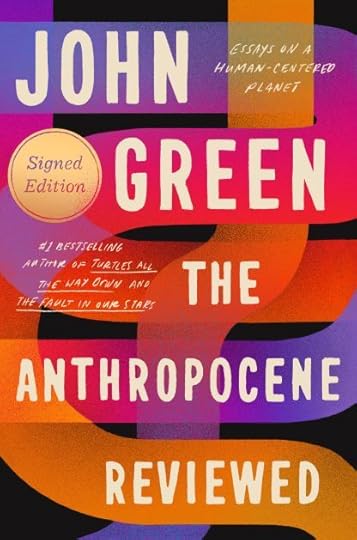 The Anthropocene Reviewed by John Green
The Anthropocene Reviewed by John GreenThe Anthropocene Reviewed by John Green is a collection of essays that allow Green to exercise his apparently boundless curiosity about . . . anything. In this case, there’s a bit of science and a bit of history strung together in these relatively short essays, giving the reader enough to chew on without being too much to absorb. Green is known for his excellent young adult novels, so this is a departure for him, but it’s one of the most enjoyable essay collections I’ve read. Being a subscriber to his YouTube channel, I saw him sign 250,000 insert pages for this book, which came out on the same day my latest novel was published, and the copy I bought includes one of those pages. The conceit of the book is that Green first writes about the origin of a star-rating system and then proceeds to apply the system to a variety of things that have drawn his attention—Halley’s Comet, Diet Dr. Pepper, Sunsets, etc.—in essays that are invariably charming. Each one reveals a tidbit of information about Green I didn’t know before (not that I knew much, but I have been aware of him for over a decade), such as that he’s a regular attendee at the Indy 500. Green is primarily a writer of YA novels, but I’ve read and appreciated his two most recent titles, The Fault in Our Stars and Turtles All the Way Down. One additional note: at a dinner in Indianapolis a few years ago honoring past winners of the various literary prizes awarded over the previous decade by the Indiana Authors Award (sponsored by the Eugene and Marylin Glick Foundation), Green and I were seated a few tables away. (He had won the National Author Award in 2012 and I had won the Emerging Author Award in 2015.) When dinner was over, my sister, who was with me, urged me to get Green’s autograph for her granddaughter, a big fan. I don’t ever do this, but I took the program for the evening, approached him, explained both that I was also a former award-winner and that my great-niece was a fan, and he graciously signed. So that was nice.
 Homeland Elegies by Ayad Akhtar
Homeland Elegies by Ayad AkhtarHomeland Elegies by Ayad Akhtar is a beautifully written puzzle and my book club’s selection for this month. Is it fiction? Is it memoir? While many of the details do seem to be drawn from Akhtar’s life, others may be fabricated. It’s impossible for the casual reader to know, and so I prefer to believe the book, which is called a novel, is fiction. It tells a story that is certainly close to Akhtar’s: a couple immigrate to the US from Pakistan to practice medicine—the husband is a cardiologist—and Ayad is born here. Time passes, he is heavily influenced by a brilliant college professor and becomes a writer. One of his plays wins the Pulitzer Prize (I saw that play, Disgraced, in a production in Washington DC), and he attracts a great deal of attention because he is Muslim, but his message is somewhat difficult to decipher, both for Muslims and non-Muslims. Meanwhile, things are happening around him, including a growing mistrust of Muslims, especially after 9/11. His mother dies, his father has a drinking and gambling problem, and is, supposedly, a Trump supporter (at least initially). And so on. It’s surprisingly gripping.
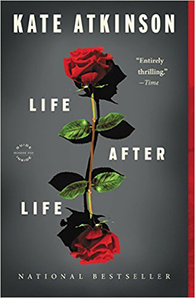 Life After Life by Kate Atkinson
Life After Life by Kate AtkinsonLife After Life by Kate Atkinson is the first of her Todd Family novels, and somehow I managed to read the second one first, but I remember loving that one (A God in Ruins) so apparently the order doesn’t matter. This book, which begins in 1910 with the birth of Ursula Todd, jumps around in time—ahead to much later events and then back to 1910, then forward again to alternative versions of events. At birth, Ursula seemed fated to die because of the umbilical cord wrapped around her neck, but as the scene is retold, the doctor (or in one version, the mother) is able to cut the cord and save her. Similar events transpire throughout her life, and she seems to have a vague notion of her death, or the death of others, or impending doom, and can take action to change the outcome. For example, in 1918, just as the end of the Great War is being celebrated, the family maid brings the Spanish Flu into the house and the disease kills Ursula’s beloved younger brother Teddy. Given a chance to relive the day, Ursula pushes the maid down the stairs, keeping her from going up to London to the celebration. The maid’s beau goes without her, contracts the flu, and dies, but in this version of events Teddy is saved. For now. More twists and turns follow. Fascinating book. (A God in Ruins, which focused on Teddy, had a similar alternative reality twist to it.)
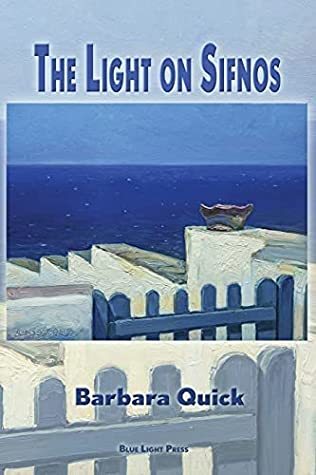
The Light on Sifnos by Barbara Quick is a lovely chapbook of poems the author wrote on a Greek island while reading The Odyssey. The title poem begins “How does one describe the light here in this place/ where the dawn really does have rosy fingers,/ where the mountains glow at night,/ their barren slopes a magnet/ for the radiance of moon and stars.” Quick has written a number of novels, but I think this is her first collection of poetry.
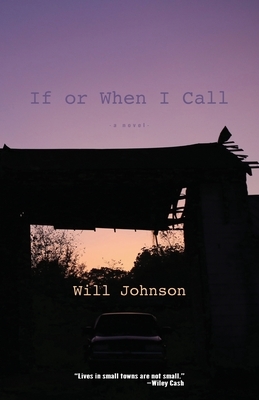 If or When I Call by Will Johnson
If or When I Call by Will JohnsonIf or When I Call by Will Johnson is a gritty novel about hardscrabble, small-town life in Missouri. Parker and Melinda meet in a bar, marry, have a son, and then the marriage falls apart, partly because of Parker’s drinking and partly because of his “fits” which doctors can’t explain or control. They split up, and Parker does his best to be a good father to Ben, but Melinda’s life is going nowhere. Melinda’s generous sister encourages her to take a road trip, and in the process, she seems to come to an understanding of what she wants. Parker, meanwhile, solidifies his relationship with Ben, and a crisis seems to bring them all closer together. Apart from a couple of significant loose threads, it’s a readable story. My full review will appear in the Southern Review of Books.
July 6, 2021
I’ve Got Questions for Barbara Quick
Editor’s Note: This exchange is part of a series of brief interviews with emerging writers of recent or forthcoming books. If you enjoyed it, please visit other interviews in the I’ve Got Questions feature.
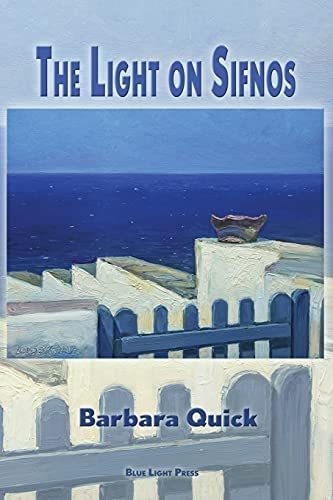 The Light on Sifnos by Barbara QuickWhat’s the title of your book? Fiction? Nonfiction? Poetry? Who is the publisher and what’s the publication date?
The Light on Sifnos by Barbara QuickWhat’s the title of your book? Fiction? Nonfiction? Poetry? Who is the publisher and what’s the publication date?The Light on Sifnos
Winner of the 2020 Blue Light Press Poetry Prize
published by Blue Light Press/1st World Publishing (April 2021)
In a couple of sentences, what’s the book about?This is a chapbook comprised of 16 poems written during a three-week stay in 2019 on the Greek Island of Sifnos while reading Emily Wilson’s new translation of The Odyssey. In the words of poet George Bilgere, “The haunting power of this collection is not epic, but Sapphic: mysteries rising from a handful of fragments gleaming in the sun. Barbara Quick’s Sifnos is a place of elemental beauty, alive with the Attic past, peopled with the ghosts still living, still wandering with the other shades in the poet’s soul as she navigates her way (with her father’s old compass) through this world, ‘the future home of all we are and all we dream / in gleaming transit through the dark.’
One of the poems, “Skinny-Dipping in Vathy,” was recorded by Garrison Keillor and featured on The Writer’s Almanac.
What’s the book’s genre (for fiction and nonfiction) or primary style (for poetry)?To quote another of the six poets who blurbed the book, Lynn Knight, “Quick’s language is as lyrical as it is accessible.”
What’s the nicest thing anyone has said about the book so far?One reader who likes my novels wrote: “I got The Light on Sifnos from Amazon just now and devoured it like a hungry tourist at a taverna. You certainly make Sifnos seem a magical place, but then you have always had the gift of seeing the magic in life. Thank you!” He ended by saying that I am now his favorite poet. It doesn’t get any nicer than that!
What book or books is yours comparable to or a cross between?That’s a hard one! I guess that readers who like Mary Oliver’s poems, especially her earlier ones, might like mine. I’m best known as a novelist. (My 2007 novel from HarperCollins, Vivaldi’s Virgins, is still in print and has been translated into a dozen languages. My fourth novel, What Disappears, set in the world of the Ballets Russes, will be published in May 2022 by Regal House.) There’s a narrative arc in The Light on Sifnos. The poems work together to tell a story about being on the island, about its past and my past—about this magical place in the world that seems to be a magnet for ghosts.
Why this book? Why now?During lockdown, all of us have desperately needed ways to travel without risking our lives or risking other people’s lives. The Light on Sifnos provides a scenic pathway to an Aegean island where the “shadows are as deep as wells, the air as clear/as something newly born.” No passport or proof of vaccination required (although I do hope everyone will get vaccinated, for the good of everyone, asap!).
Other than writing this book, what’s the best job you’ve ever had?I’ve always been a writer—and I wouldn’t trade my job as a writer for any other job! Even when I’ve had other jobs (and I’ve had a lot of ’em, from editing and landscape gardening to being a private chef and running an international boardinghouse), I’ve never stopped being a writer for one single moment. I sometimes need to remind my friends, when they’re telling me a particularly evocative story from their own lives, “Remember who you’re talking to! I might have to use that someday.” Writing isn’t a job for me. It’s simply a matter of the way I’m wired. It has, throughout my life, been my salvation.
What do you want readers to take away from the book?I want readers to feel transported to this remote Greek island—to feel its beauty and its charms and its cragginess with all their senses. My best reward is when readers tell me my work has made them laugh and/or cry. My aspiration is to write both poetry and fiction as emotionally evocative as the best music—an arrow straight to the heart.
What food and/or music do you associate with the book?That’s an easy one! Revithada (Greek chickpea stew) cooked slowly in a clay vessel in a wood-burning oven, eggplant stuffed with ground lamb and pine-nuts and raisins, lovely little cold glasses of ouzo and a local liqueur distilled from rose geraniums. Seafood harvested from the waters lapping at one’s feet at one of the many beach-side tavernas in places too tiny to be called a village. Greek salad, of course, garnished with delicious olives and the local mizithra cheese. Strong little cups of espresso and anise cookies still warm from the oven. All to the strains of a bouzouki strummed by a master of the instrument singing harmony to the brilliant dark-eyed singer clad in red, who played the guitar. Everyone at the café (except us!) singing along with passionate feeling, till the wee hours of the morning, to songs about workers’ rights and lost love.
What book(s) are you reading currently?I have by my bed now What We Were Born For, poems by Emilie Lygren; Blood Memory, poems by Gail Newman; An American Sunrise, poems by Joy Harjo. I just finished a fascinating historical novel, Bride of the Buddha, by the religious scholar Barbara McHugh. And I’ve just ordered While Listening to the Enigma Variations: New and Selected Poems by Diane Frank.
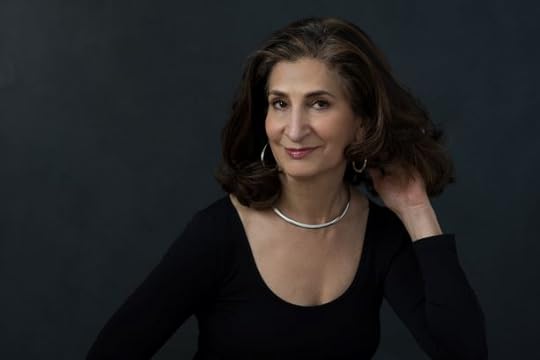 Barbara Quick
Barbara QuickLearn more about Barbara at her website.
Follow her on Facebook and Twitter.
Buy the book from Bookshop.org or Amazon.
July 1, 2021
2021 Reading–June
Although it was a busy month, I managed to finish five books.
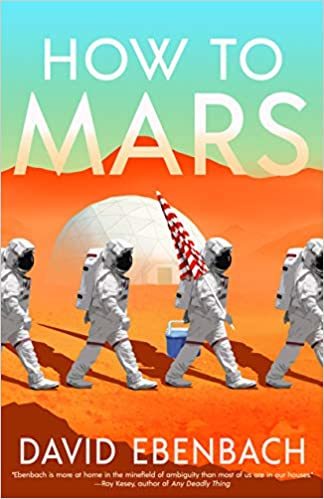 How to Mars by David Ebenbach
How to Mars by David EbenbachHow to Mars by David Ebenbach is science fiction, sort of. In the near future, the technology has been developed to create a small colony on Mars, and six volunteers have taken up residence. Despite explicit prohibitions against having sex, two of the marsonauts have conceived a baby and much of the novel involves the pregnancy and repercussions thereof. Not surprisingly, there are conflicts among the residents, and those provide for interesting subplots. Overall, the read was a lot of fun and brought to mind situations where I’ve been confined (for much shorter periods of time) with just a few people. Because the operation of the Mars colony is also a reality TV show back on earth, it felt a little like shows such as Survivor or Big Brother, and maybe someday those shows will have episodes set on a distant planet. Stay tuned.
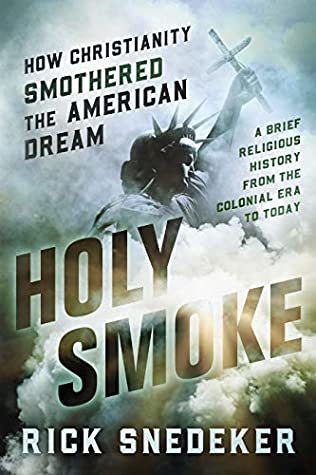 Holy Smoke by Rick Snedeker
Holy Smoke by Rick SnedekerHoly Smoke: How Christianity Has Smothered the American Dream by Rick Snedeker is basically a history of Christianity in America in all of its various forms as different sects immigrated from Europe for different reasons and settled in the colonies. It also traces the waves of influence over the country’s history as well as the form Christianity took in slave and native communities. The efforts of some to let Christianity dominate government, in the author’s view, has been damaging to democracy, and the solution, he says, is to teach children earlier about philosophy and critical thinking. I don’t disagree, but it seems naïve to think that this alone will lead citizens to recognize the fantasy at the heart of Christianity (and other religions). America is becoming more secular, following the lead of parts of Europe, but very powerful elements in society are attempting to drag us backward, and I fear they are succeeding.
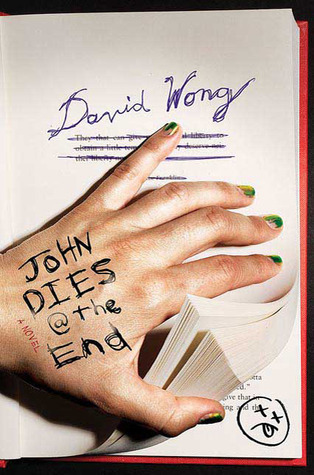 John Dies at the End by David Wong
John Dies at the End by David WongJohn Dies at the End by David Wong (a.k.a. Jason Pargin) is one of the dumbest books I’ve ever read. Humor? Horror? Hurror? I’m not sure what it is. The main character is David Wong and, like the author, even in the book that’s not his real name. He and his buddy John live in a town that is never named—he refers to it as Undisclosed— and that seems to be the center of some very strange goings on. Dave is telling the story of the weird stuff to a reporter named Arnie who has come down from Chicago to investigate, and Arnie is having a hard time believing any of it. In the telling, Dave slips into the character so much, that the frame disappears for the reader, and eventually so does the reporter. Meanwhile, it gets weirder and weirder. Shame on me for bothering to read to the end.
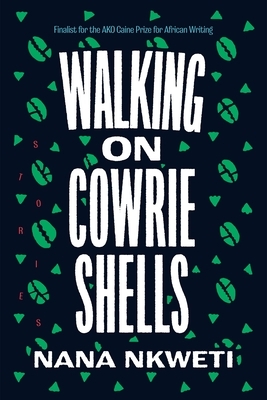 Walking on Cowrie Shells by Nana Nkweti
Walking on Cowrie Shells by Nana NkwetiWalking on Cowrie Shells by Nana Nkweti is a collection of short stories set in or featuring characters from Cameroon. Most of the main characters are young women who, even accounting for their Cameroonian heritage, speak in ways I find hard to follow—lots of hip jargon and slang. That’s not criticism, because the meaning is usually clear enough. It’s just an age group that’s mostly foreign to me. Some of the stories will stick with me longer than others. The opening story, about a girl who is adopted by an American family with Cameroon connections, but despite their good intentions, things don’t go well. I also liked the next story, in which a Cameroonian girl in New York/New Jersey is working on graphic novels with a young Korean American and the story even includes words in Korean Hangul script. You don’t see that every day, and it doesn’t really matter if you can’t read it. I’ll be hosting a program for the Virginia Center for the Creative Arts for two authors, including Nkweti.
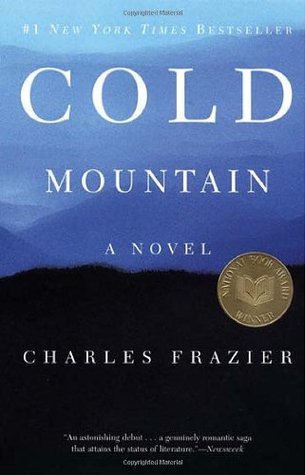 Cold Mountain by Charles Frazier
Cold Mountain by Charles FrazierCold Mountain by Charles Frazier did not meet my expectations. I’d heard so much about this book over the years—I didn’t see the movie—that I assumed I would love it. I did not. It’s one of the most over-written books I’ve ever read. While I applaud the author’s attention to detail (excruciating detail, most of the time), and the extreme authenticity of language (so many tools and processes with names I’ve never heard), it simply overwhelms the story, which is pretty basic: man and woman meet and seem to share an attraction; man goes off to war, where he sees the worst of mankind, and meanwhile the woman struggles to survive on the home front; man eventually makes his way home overcoming nearly impossible obstacles, his survival surpassing all odds. Maybe I should have watched the movie instead.
June 30, 2021
I’ve Got Questions for Kevin M. McIntosh
Editor’s Note: This exchange is part of a series of brief interviews with emerging writers of recent or forthcoming books. If you enjoyed it, please visit other interviews in the I’ve Got Questions feature.
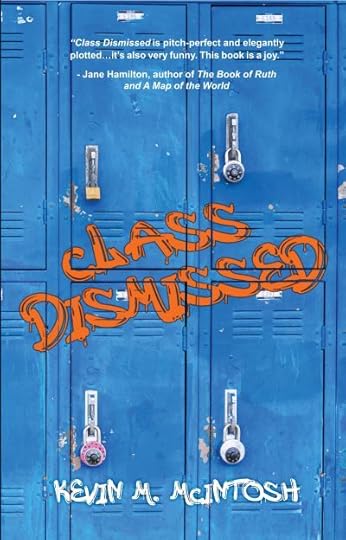 Class Dismissed by Kevin M. McIntoshWhat’s the title of your book? Fiction? Nonfiction? Poetry? Who is the publisher and what’s the publication date?
Class Dismissed by Kevin M. McIntoshWhat’s the title of your book? Fiction? Nonfiction? Poetry? Who is the publisher and what’s the publication date?My book is Class Dismissed, a novel. It is being released by Regal House Publishing on July 1, 2021.
In a couple of sentences, what’s the book about?A young Midwestern teacher is cast down a NYC rabbit hole of Board of Ed bureaucracy and union politics when a privileged but learning-disabled student is injured in his classroom.
What’s the book’s genre (for fiction and nonfiction) or primary style (for poetry)?Class Dismissed is realistic literary fiction.
What’s the nicest thing anyone has said about the book so far?Jane Hamilton called my novel “pitch-perfect . . . elegantly plotted . . . very funny . . . not to mention harrowing.”
What book or books is yours comparable to or a cross between? [Is your book like Moby Dick or maybe it’s more like Frankenstein meets Peter Pan?]If Richard Russo and To Sir with Love had a baby.
Why this book? Why now?Although Class Dismissed is set in mid-’90s Manhattan, the race and class tensions are just as strong today. Maybe stronger. The inequities between urban and suburban schools have not been addressed.
Other than writing this book, what’s the best job you’ve ever had?Teaching 8th graders how to write, speak, think critically. City or suburb, 8th graders are a wild and fascinating bunch.
What do you want readers to take away from the book?What a complex task teaching is, what a small miracle it is when it’s done really well. How much work is left to be done to make education a level playing field nationally.
What food and/or music do you associate with the book?Certain scenes and chapter titles riff on music from Frank Sinatra to ’60s rock ’n’ roll.
What book(s) are you reading currently?I’m reading American Prometheus, a biography of J. Robert Oppenheimer, and re-reading The Radetsky March, a brilliant novel by Joseph Roth.
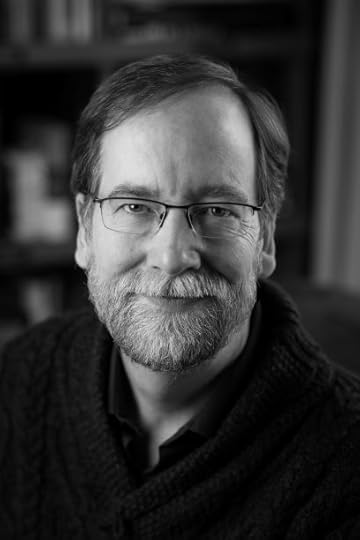 Kevin M. McIntosh (photo by Small Circle Studio)
Kevin M. McIntosh (photo by Small Circle Studio)Learn more about Kevin at his website.
Follow Kevin on Twitter.
Buy the book from Regal House Publishing, Bookshop.org, or Indiebound.
June 16, 2021
I’ve Got Questions for Valerie Nieman
Editor’s Note: This exchange is part of a series of brief interviews with emerging writers of recent or forthcoming books. If you enjoyed it, please visit other interviews in the I’ve Got Questions feature.
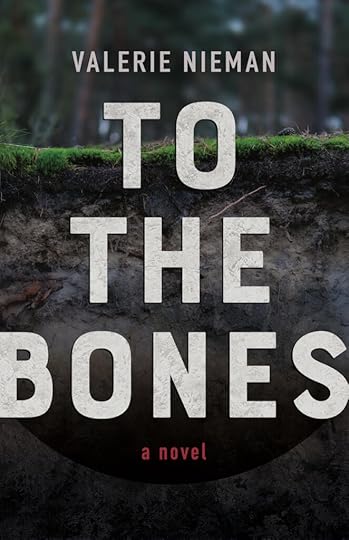 To the Bones by Valerie NiemanWhat’s the title of your book? Fiction? Nonfiction? Poetry? Who is the publisher and what’s the publication date?
To the Bones by Valerie NiemanWhat’s the title of your book? Fiction? Nonfiction? Poetry? Who is the publisher and what’s the publication date?To the Bones, Fiction, West Virginia University Press, 2019
In a couple of sentences, what’s the book about?A man left for dead rises from his grave only to find the Appalachian town he’s stumbled into is ruled by the lethal Kavanaugh clan — and that he has gained new and terrible powers. He joins forces with a woman searching for her missing daughter, a disgraced deputy, and a reporter crusading against environmental devastation to take on the coal barons who drain the life from the place and its people.
What’s the book’s genre (for fiction and nonfiction) or primary style (for poetry)?Appalachian folk horror/mystery, a working-class thriller with zombies, an eco-justice quest tale — you can pick your point of view, but I’d just say it’s a good tale well told.
What’s the nicest thing anyone has said about the book so far?Cemetery Dance commented “It’s one of my favorite books of the past year,” and that’s hard to top, but these words in Small Press Picks were just as wonderful: “In Valerie Nieman’s thrilling, genre-bending novel To the Bones, the richly rendered setting is inseparable from characters’ fears, strengths, and weaknesses and from nearly every tragedy and triumph in the story….like Stephen King’s masterpiece The Dead Zone, Nieman’s novel insightfully portrays the complications of possessing unexpected powers, which rarely are unmitigated blessings.”
What book or books is yours comparable to or a cross between? [Is your book like Moby Dick or maybe it’s more like Frankenstein meets Peter Pan?]Storming Heaven meetsStephen Kingwith a side of mixed myths including Demeter/Persephone.
Why this book? Why now?I was coming off a difficult series of revisions for another novel, Backwater, which while finished much earlier will not be out until 2022. Anyway, I wanted to have fun, to just let go and let a story unwind. At some point I mentioned to a friend that back when I lived in West Virginia, if I were ever going to kill someone then I’d just throw the body down a mine crack. He challenged me to do exactly that.
Other than writing this book, what’s the best job you’ve ever had?My first paid writing job was as a reporter and then summer editor for The Daily Athenaeum, WVU’s student newspaper. That involved everything from covering a mine strike to reporting on the volleyball team. It was the real-life lab where I earned my stripes as a journalist. I learned to write clearly, concisely, and on deadline. I interviewed my first governor (Jay Rockefeller) and reviewed my first concert and many other firsts. We worked in a ratty old wood-frame building, long gone, with offset typesetters on the second floor and the newsroom directly under those heavy machines. It led to a certain fatalism. I will always remember the fresh peach milkshakes whirled up at the Dairy Queen around the corner on High Street.
What do you want readers to take away from the book?While the stories of Appalachia and of coal may be deeply intertwined, both are far more complicated than the depictions in commercial movies or “prescriptive” memoirs that focus on pathologies from a safe distance.
What food and/or music do you associate with the book?Pepperoni rolls! Created in West Virginia as a lunch bucket staple for miners, they are now found in many forms, from twice-baked entrees loaded with mozzarella and Italian peppers to dainty cocktail-party snacks. Music that I listened to during this time included Kathy Mattea’s Coal album, and as always a good bit of Tom Petty and Bruce Springsteen.
What book(s) are you reading currently?I just moved into a new home and am still sorting things out, but I have at least three shelves of books bought and yet unread. Next up are Stephen Dobyns’ The Church of Dead Girls, Joyce Carol Oates’ new collection Beautiful Days, and There There by Tommy Orange.
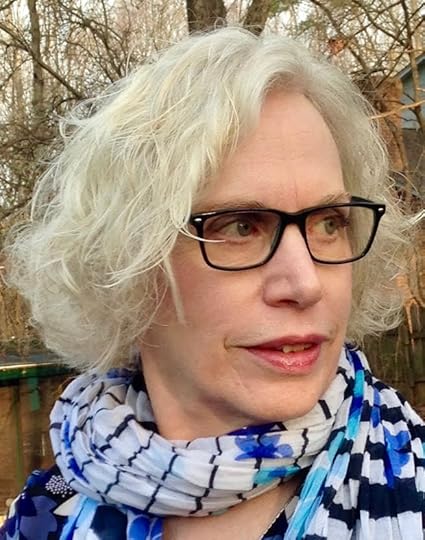 Valerie Nieman
Valerie NiemanLearn more about Val at her website.



